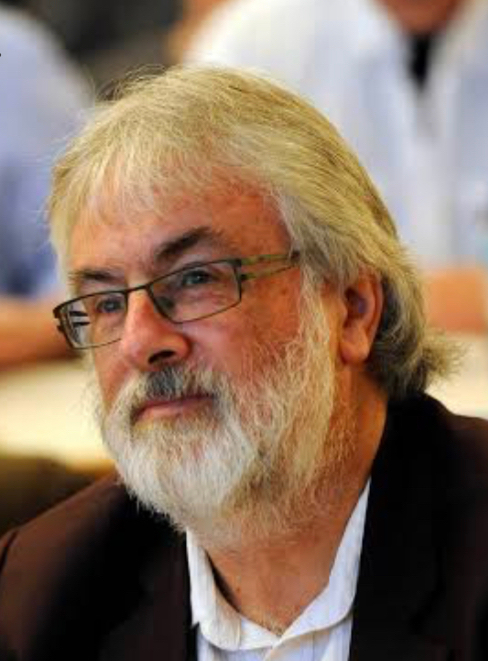On 21 February the NZ Herald published a compelling article by its Wellington-based journalist Vita Molyneux on the state of child palliative care in Aotearoa New Zealand: Health system failing terminally ill children.
The article is more than compelling, however. It is gut-wrenching, particularly the families experiences.
What makes these tragic circumstances even more gut-wrenching is the fact that the situation was avoidable.
Donor-dependent charity
A large part of the article centres on the expert advice of Dr Amanda Evans. She is a medical specialist in paediatric palliative care. In terms of medical specialists she is a rarity. There is only one other paediatric palliative care specialist in New Zealand.
She runs the severely under-funded Rei Kōtuku, a Wellington charity founded to provide specialised palliative for children aged 24 weeks to 19 years. It works alongside general practitioners and other hospices to assist children and their families.
However, it is completely dependent on a private donor whose funding will end in April 2025 meaning that the charity will have to close if alternative funding is not provided.
Dr Evans’ central message in the article is that New Zealand is falling behind other countries in its care of terminally ill children. Consequently the “Government must step up to help.”
She notes that “There’s absolutely no after-hours service funded in New Zealand for paediatric palliative care. We’ve provided 90 hours of after-hour care for free, unpaid, in the last three months and we just do it because we really believe that it’s important.”
International decline
Dr Evans reports a study of paediatric palliative care in 2021 which placed New Zealand at what is labelled Level Four. This meant that the care was in line with other developed nations.
But, in 2023, it fell dramatically putting in on Level Two. In other words, on a par with developing nations like Ethiopia and Cameroon.
Three reasons are behind this dramatic decline:
- Worsening shortages with health professionals leaving the workforce.
- Increasing numbers of patients needing the service.
- Lack of funding (the only government funding is for Starship Hospital in Auckland).
This situation could have been avoided by a combination of better planning and a greater commitment to funding.
However, the previous government allowed itself to be distracted by its massive but destabilising health restructuring.
A disregarded report
In 2012 the Ministry of Health released a constructive report on paediatric palliative care services in New Zealand and how they might be better supported through improved integration within the health system: Summary of Guidance for Integrated Paediatric Palliative Care Services.
Its recommendations were:
- Changing the role of the Starship Hospital paediatric palliative care ward to that of a national coordinator for services across the country.
- Establishing a network of coordinators (nurses and lead paediatricians) in the district health boards (DHBs).
- Developing and implementing an education and training process for these coordinators.
- Establishing a national paediatric palliative network supported by equitable funding.
Unfortunately implementation has been slow and, at best, patchy. Twelve years later there is still no set standard of care.
This is a damming indictment of health system leadership at a national level.
Light at the end of the tunnel?
The last National-led government had around five years to implement the report’s recommendations. Its performance fell well short of this objective.
The Labour-led government since 2017 performed even worse. Not only did it allow workforce shortages to further deteriorate. It made things worse by abolishing DHBs who were critical to implementation.
The health system was left destabilised with Te Whatu Ora (Health New Zealand) stymied by ongoing internal restructuring, reliance on interim appointments, staff unhappiness, and a developing unhelpful command and control culture.
Nevertheless, there is possibly some light at the end of this tragic tunnel. In August 2023 a National Palliative Care Steering Group was established with Dr Evans as co-chair.
Minister of Health Dr Shane Reti is sympathetic to the plight of affected families and is awaiting the report. It is important that he gets it and takes action.
But rather than just wait for another report why not be proactive by requiring Te Whatu Ora to commence fully implementing the recommendations of the 2012 review now.
And while he’s at it, require it to also fund the Rei Kōtuku charity.



 Gordon Campbell: On Surviving Trump’s Trip To La La Land
Gordon Campbell: On Surviving Trump’s Trip To La La Land Ramzy Baroud: Famine In Gaza - Will We Continue To Watch As Gaza Starves To Death?
Ramzy Baroud: Famine In Gaza - Will We Continue To Watch As Gaza Starves To Death? Peter Dunne: Dunne's Weekly - A Government Backbencher's Lot Not Always A Happy One
Peter Dunne: Dunne's Weekly - A Government Backbencher's Lot Not Always A Happy One Richard S. Ehrlich: Cyber-Spying 'From Lhasa To London' & Tibet Flexing
Richard S. Ehrlich: Cyber-Spying 'From Lhasa To London' & Tibet Flexing Gordon Campbell: On Aussie Election Aftershocks And Life Lessons
Gordon Campbell: On Aussie Election Aftershocks And Life Lessons Martin LeFevre - Meditations: Regarding Popes, Dopes And Hopes
Martin LeFevre - Meditations: Regarding Popes, Dopes And Hopes